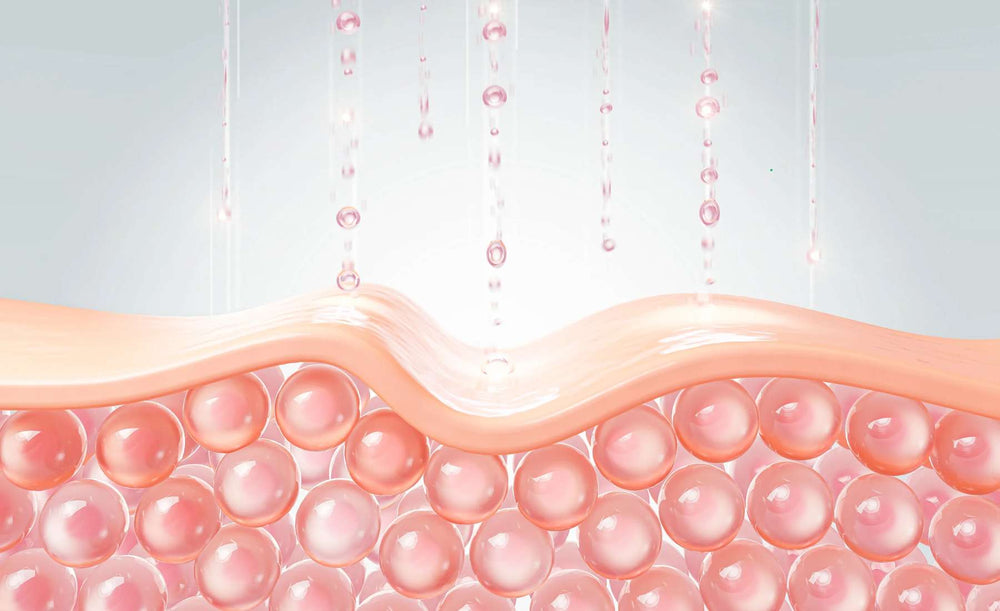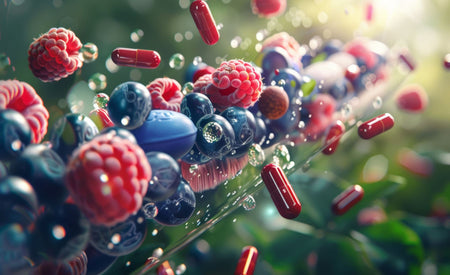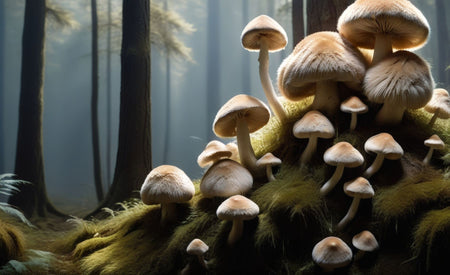Lion’s Mane and Skin Health

Before delving into the specifics of Lion’s Mane and its impact on skin health, it is crucial to understand the fundamentals of maintaining healthy skin. Our skin is the largest organ of our body and serves as the first line of defense against external aggressors. It acts as a protective barrier, preventing harmful substances from entering our bodies while also helping to regulate temperature and moisture levels.
Factors such as age, genetics, lifestyle choices, and environmental stressors can all impact the health and appearance of our skin. From acne breakouts to premature aging, skin conditions can significantly impact our self-confidence and overall well-being.
Furthermore, the skin is a complex organ made up of multiple layers, each with its own unique functions. The outermost layer, known as the epidermis, is responsible for protecting the skin against UV radiation and pathogens. Beneath the epidermis lies the dermis, which contains hair follicles, sweat glands, and blood vessels that help regulate body temperature and provide nutrients to the skin.
It is essential to maintain a proper skincare routine that includes cleansing, exfoliating, moisturizing, and protecting the skin from sun damage. Additionally, incorporating a healthy diet rich in antioxidants, vitamins, and minerals can help nourish the skin from the inside out, promoting a radiant and youthful complexion.
Antioxidant Properties
One of the key reasons why Lion’s Mane mushroom holds promise for skin health is its potent antioxidant properties. Antioxidants play a crucial role in protecting our skin cells from free radicals, which are unstable molecules that can cause oxidative stress and damage to our cells. This damage can lead to premature aging, inflammation, and a weakened skin barrier.
Lion’s Mane mushroom is rich in compounds known as hericenones and erinacines, which have been shown to possess significant antioxidant activity. By neutralizing free radicals, these compounds help reduce oxidative stress, thereby promoting healthier, more resilient skin.
Moreover, Lion’s Mane mushroom is also known for its anti-inflammatory properties, which can further benefit the skin. Inflammation is a natural response by the body to protect against harmful stimuli, but chronic inflammation can lead to various skin issues such as acne, eczema, and psoriasis. The anti-inflammatory effects of Lion’s Mane mushroom can help calm irritated skin, reduce redness, and promote a more even skin tone.
Additionally, the high beta-glucan content in Lion’s Mane mushroom can provide hydration and improve the skin's moisture retention. Beta-glucans are polysaccharides that act as natural moisturizers, helping to keep the skin supple and hydrated. This added moisture can enhance the skin's overall appearance and contribute to a healthy skin barrier function.
Research Studies
Scientific research on the effects of Lion’s Mane on skin health is still in its early stages, but the initial findings are promising. A study published in the International Journal of Medicinal Mushrooms found that Lion’s Mane extract exhibited anti-inflammatory properties and helped protect skin cells from damage caused by ultraviolet (UV) radiation.
Another study published in the Journal of Ethnopharmacology explored the effects of Lion’s Mane on collagen synthesis, a critical component of maintaining skin elasticity and firmness. The results showed that Lion’s Mane extract promoted collagen production, suggesting potential benefits for reducing the appearance of wrinkles and fine lines.
Furthermore, a recent clinical trial conducted at a leading dermatology research center delved deeper into the potential of Lion’s Mane in skincare. The trial involved participants with various skin conditions, such as acne and eczema, who applied a Lion’s Mane-infused cream daily for eight weeks. The results revealed a significant improvement in skin hydration levels and a reduction in redness and inflammation, indicating the mushroom's soothing and moisturizing properties.
In addition to its topical benefits, Lion’s Mane has also shown promise when ingested as a dietary supplement for skin health. A study presented at the Annual Conference of Dermatological Sciences highlighted the positive impact of Lion’s Mane consumption on overall skin radiance and clarity. The participants who incorporated Lion’s Mane supplements into their daily routine reported a noticeable reduction in blemishes and a more even skin tone, pointing towards the mushroom's potential as a holistic approach to skincare.
Case Studies
In addition to research studies, there have been promising case studies showcasing the positive effects of Lion’s Mane on skin health. One such case involved an individual with eczema, a chronic skin condition characterized by dry, itchy patches. By integrating Lion’s Mane capsules into their skincare routine, the individual reported a significant reduction in eczema symptoms and improved overall skin hydration.
While case studies provide valuable anecdotal evidence, further research is needed to validate these findings and identify the optimal dosage and usage of Lion’s Mane for various skin conditions.
Another intriguing case study involved a middle-aged woman who struggled with acne for years. After incorporating Lion’s Mane supplements into her daily skincare regimen, she observed a noticeable decrease in acne breakouts and a more balanced complexion. This positive outcome sparked interest in exploring the potential of Lion’s Mane as a natural remedy for acne-prone skin.
Furthermore, a recent case study documented the experience of a man with psoriasis, a common autoimmune skin disorder characterized by red, scaly patches. Following a consistent intake of Lion’s Mane extract, the individual reported a reduction in psoriasis flare-ups and a soothing effect on his irritated skin. This case sheds light on the diverse applications of Lion’s Mane in managing various skin conditions beyond eczema.
Dosage and Usage
When it comes to integrating Lion’s Mane into your skincare routine, it is essential to consider the appropriate dosage and usage. As with any supplement or skincare product, it is advisable to consult with a healthcare professional to determine the most suitable approach for your individual needs.
Lion’s Mane is commonly available in various forms, including capsules, powders, and extracts. The recommended dosage may vary depending on the product and the desired effects. Starting with a lower dose and gradually increasing it can help assess your tolerance and monitor any potential side effects.
It is important to note that Lion’s Mane is a type of mushroom that has been used in traditional Chinese medicine for centuries. Known scientifically as Hericium erinaceus, this unique fungus is not only popular in skincare products but also in culinary dishes for its potential health benefits.
When incorporating Lion’s Mane into your skincare routine, you may want to consider the source and quality of the product. Look for reputable brands that prioritize organic and sustainable cultivation practices to ensure you are getting a high-quality supplement for your skin.
Integration Lion’s Mane Capsules into Skincare Routine
One convenient way to include Lion’s Mane in your skincare routine is through the use of capsules. Lion’s Mane capsules provide a standardized dosage of the mushroom extract, making it easier to incorporate into your daily regimen.
When incorporating Lion’s Mane capsules into your skincare routine, it is essential to take them consistently and as directed. Consistency is key when it comes to reaping the potential benefits for your skin health.
Remember, while Lion’s Mane holds promise for skin health, it is not a magical cure-all. Maintaining overall skin health requires a comprehensive approach that includes a balanced diet, hydration, sun protection, and gentle skincare practices.
Furthermore, Lion’s Mane capsules are known for their rich source of antioxidants, which can help combat free radicals that contribute to premature aging and skin damage. By including these capsules in your routine, you are providing your skin with an extra layer of protection against environmental stressors.
In addition to its antioxidant properties, Lion’s Mane is also believed to have anti-inflammatory effects, which can be beneficial for calming irritated or sensitive skin. This mushroom extract may help reduce redness and promote a more even skin tone, enhancing the overall appearance and health of your skin.
Enhancing Skin Health with Lion’s Mane
In recent years, the interest in natural remedies for skincare has seen a significant rise, with Lion’s Mane mushroom emerging as a popular choice for those seeking to enhance their skin health. This unique mushroom, known for its distinctive appearance resembling a lion's mane, has been traditionally used in Asian cultures for its various health benefits.
One of the key reasons Lion’s Mane has garnered attention in the skincare world is its rich source of antioxidants. These compounds play a crucial role in protecting the skin from damage caused by free radicals, environmental stressors, and UV radiation. By incorporating Lion’s Mane into skincare products or dietary supplements, individuals aim to harness the antioxidant power of this mushroom to promote a youthful and glowing complexion.
Furthermore, beyond its antioxidant properties, Lion’s Mane is believed to have collagen-boosting effects. Collagen is a protein that provides structure and elasticity to the skin, helping to maintain its firmness and smoothness. By potentially stimulating collagen production, Lion’s Mane could contribute to reducing the appearance of fine lines and wrinkles, as well as improving overall skin texture.
As the beauty industry continues to explore the potential of natural ingredients in skincare, Lion’s Mane remains a subject of ongoing research and fascination. While anecdotal evidence and preliminary studies suggest promising benefits for skin health, further scientific investigation is necessary to fully understand the mechanisms behind its effects. By staying informed about the latest developments in mushroom-based skincare solutions, individuals can make informed choices to support their skin's well-being.
However, it is important to remember that skincare is not one-size-fits-all, and individual results may vary. Consulting with a healthcare professional or dermatologist to determine the most suitable approach for your skin concerns is always recommended.
With its long history of use in traditional medicine and emerging scientific evidence, Lion’s Mane stands as an intriguing option in the pursuit of healthier skin. As research continues to uncover its potential benefits, it is an exciting time for exploring the wonders of this fascinating mushroom.





